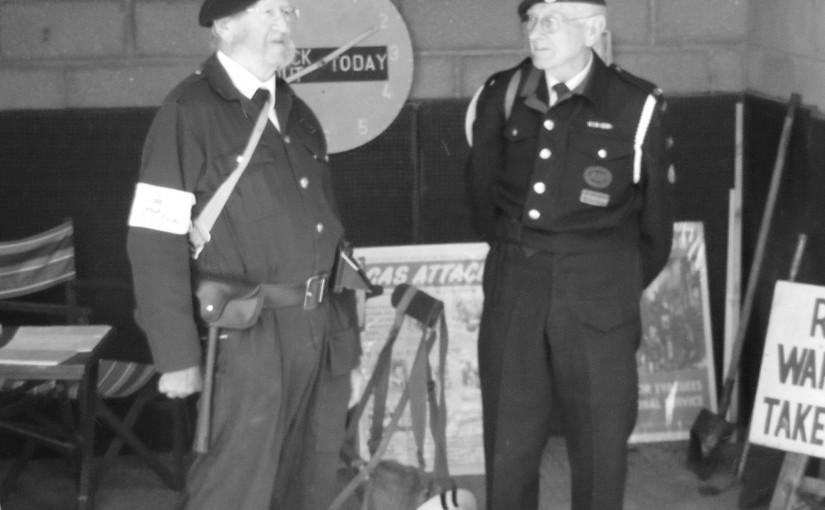The Story of a WWll Evacuee,
By Richard Holdsworth,
“Six spoons of sugar, Mister, What’s that about?”.
“It’s the Rationing allocation during the war. Six tiny teaspoons.”
“For kids like me?”
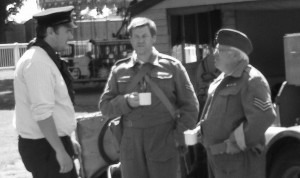
“For everyone. Just six tiny spoons a day for all your coffee and tea and your cornflakes in the morning. And if you wanted cakes and biscuits, Mum had to make them using the sugar ration. And jam on your bread. Mum had to make that in the war too you know.”
“What’s wrong with going down to Tescos, Mister? Did Hitler bomb it?”
There is laughter all round the classroom but it shows how today’s children can’t grasp what living through the war was like. “I am afraid there was no Tescos in those days… Just the village shop.”
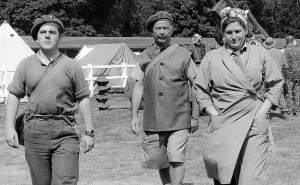
I’m giving a talk to a local school about being an evacuee and how it affected me. I was lucky because I was sent away with my older sister and my Mum but it didn’t stop the war having an enormous impact on my life. The bombs, the Blackout and food rationing.
The kids seem happy thinking of the village shop dispensing their favourite sweeties. “I’m afraid they were rationed too,” I say. And tell them how I remember my Mum and Dad sitting round the wireless listening to a man by the name of Morrison telling us how bacon and butter was to be rationed as well as sugar. He was the Minister for Food and it was November 1939 just after the war had started and he added lots of other meat suplies to the rations just a few weeks later.
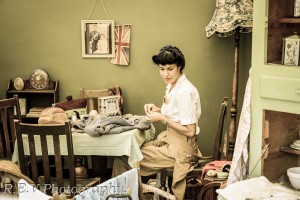
A WHOLE WEEK’S RATION
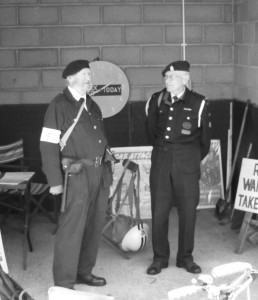
There is silence round the classroom. “A grown up’s allowance each week was one fresh egg, 4oz of margarine and bacon – which was about four rashers – 2 oz each of butter and tea and 1oz of cheese. Meat was rationed by price, so cheaper cuts became popular. The meat ration for grown ups was 1/10d and 11d for children. That’s about 20p for grown ups in today’s money and about 10p for you kids. For a whole week’s rations. What do you think of that kids?”
After they have taken all this on board, they want to know about me being an evacuee and a little girl’s hand shoots up, “Where did you live, Mister, and where did you get sent away to?”
“That’s easy,” I say. “We lived in London, South London, near Croydon Airport and Dad reckoned we would be bombed so he sent us off to Auntie in the country. To a little village in West Berkshire called Upper Basildon. Most children went without their mums. There were nearly two million of them. All by train.”
The children listening with their teacher can’t believe the numbers but think it must have been fun.
“It might have been fun for some children,” I say. “But for many it was a nightmare.”
Teacher has shown the children pictures of evacuees with name tags pinned to their coats, bags containing a change of clothes and spare pair of shoes if they were lucky. And they were all given a chocolate bar to keep them going on the journey. “Imagine,” I say, “being sent away from your Mum and Dad to a strange house with strange people. Some of the evacuees ran away because they hated it so much… they were trying to get back home. That was not much fun”.
Then I told the school children how I knew two little girls evacuated with me to Upper Basildon who tried to get back home to London. The older girl packed their few possessions – spare socks, toothbrush, and their coats in a little bag – took her sister by the hand and walked out of the house one dark evening. They were found on Pangbourne station late at night by a policeman and taken back to their evacuee home.
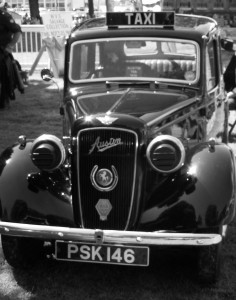
TAKE COVER – HERE COMES THE BOMBER!
The next question isn’t hard either. “Were you bombed, Mister?”
“Yes,” I say. “My Mum took me into Reading for shopping one day, some new shoes for me and a shirt for my Dad. Clothes were rationed too but Mum had saved up all her coupons. We had just finished the shopping when a German bomber came skimming overhead, just missing the church, and dropped a huge bomb. I will always remember that day – it was February 10, 1943, and I was blown off my feet and ended up in hospital. My Mum woke up in a different part of the hospital and thought I was dead and I thought my Mum was too. Fortunately we were ok – just a few bumps and bruises – but 49 people were killed in Reading that day and nearly 100 seriously injured.”
That was the worst part of the war for me. But when the Americans came into the village it got much better… The first ship bringing their soldiers arrived in Belfast early in January 1942 and they were led by Major General Russell Hartell and greeted by the Prime Minister of Northern Ireland. The band played the Star Spangled Banner and they all sang Home on the Range and There’ll always be an England. Soon the first Americans came roaring into our village, through the narrow lanes in Jeeps and trucks and some tanks too. Us kids thought it was the best thing that had ever happened. They had smiles and pearly white teeth and chewing cum and sweets they called candy. We soon learnt to call out, “Got any gum, chum?” And they always obliged.
They trained in the woods and fields around our village but by the middle of 1944 they were ready for battle and on June 6th they joined our forces in re-capturing France on what became known as D-Day. Like so many of our forces, many of them didn’t come back – there was enormous loss of life.
“How many died, Mister?”
I say I don’t know how many died on D-Day but after the war they counted the dead on all sides and it was over fifty-two million. Do you hear that? Fifty-two million, including children like you, your brothers and sisters, mums and dads.”
The children from Year Four are silent now. No more questions.
Story by Richard Holdsworth and told in his book Six Spoons of Sugar, sold at War & Peace Revival £9.95.
See more on: www.holdsworthwrites.co.uk
From the July 2013 issue of” Rye’s Own”
All articles, photographs and drawings on this web site are World Copyright Protected. No reproduction for publication without prior arrangement.
